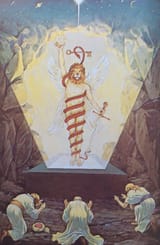>>214343726
>I feel like there's something in Covenant from Ridley, maybe something he didn't even intend, about the nature of sequels and giving people what they want vs. giving people something new.
Let me just add to this.
We're in a weird moment in history, where I think we've reached a point where we're on the cusp of actually achieving all these sci-fi dreams from history. AI which, if not conscious is more complex than humans (we have news stories about AI solving mathematical equations humans have never been able to solve, and inventing languages to talk to themselves with, which humans can't interpret). We frankly have the technology to create all kinds of insanity with genetic engineering: chimera creatures, superhuman designer babies, editing diseases out of the human genome, or creating new malformed creatures out of sadomasochistic impulse. Nanotechnology, and all of its attendant apocalypse scenarios...
I read an insane conspiracy theory once about how quantum computer graphics cards and spacecraft engines of the future will essentially be the same - future spacecraft will essentially "render" where they want to go, like rendering CGI.
Raised By Wolves touched on a lot of these.
But basically: we're at this weird moment in history where all of the really interesting scientific advancements we *could* do are now beyond the pale when it comes to considerations of common morality and ethics.
So maybe God himself is concerned about wanting to advance human history forward into strange and futuristic territory.
Not that I would presume to know the mind of God, but
I've seen an eastern angle on things that the collective of humanity constitutes the mind of "God".
Which is to say maybe Alien: Covenant is what God wanted to say, being a product between Ridley Scott's desires and the desires of the mass audience.
David does essentially win, and the ending of the film leaves things open for exploring new territory, psychically.








